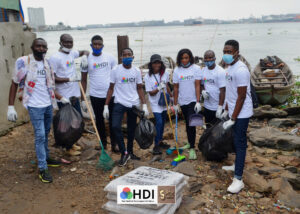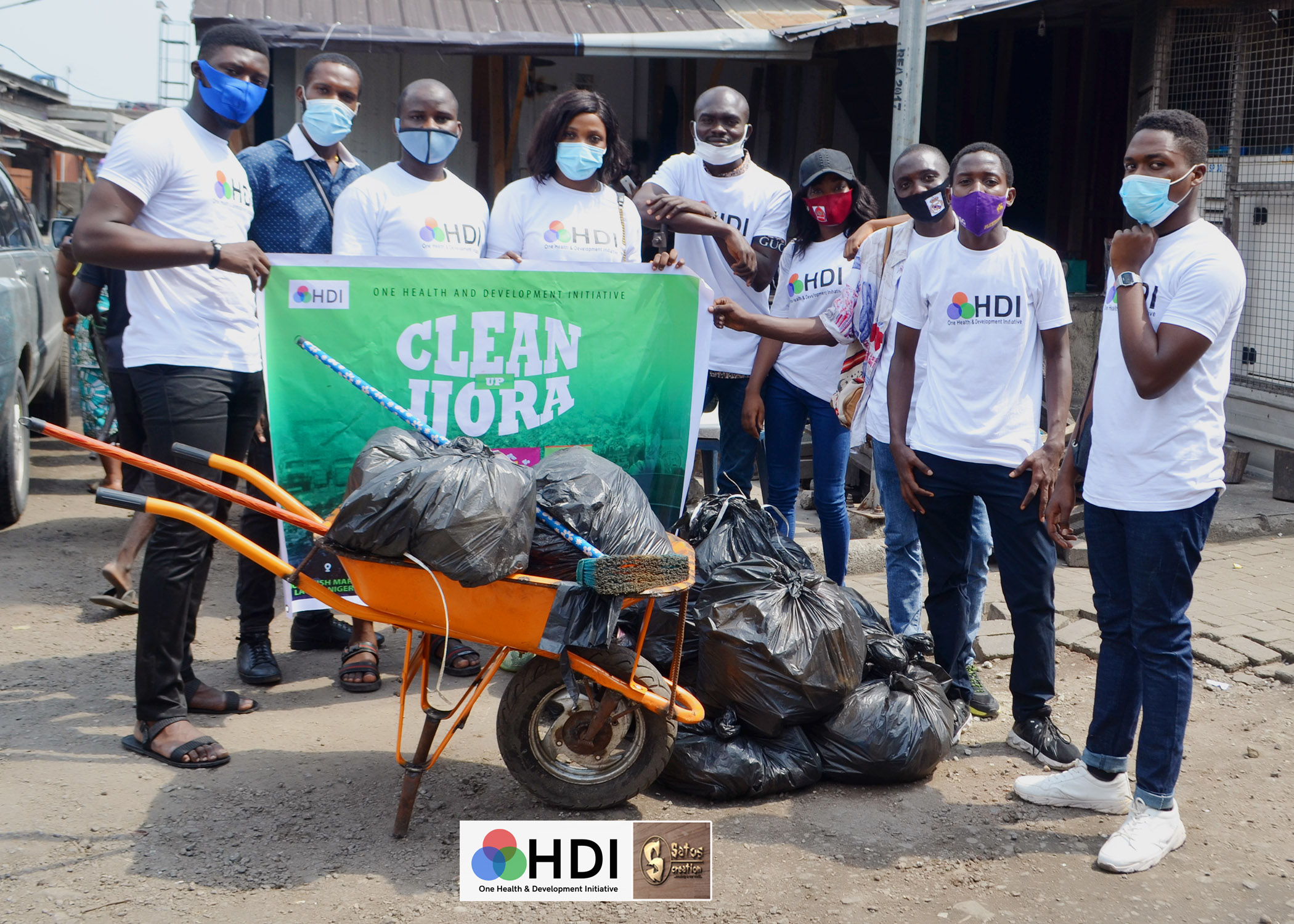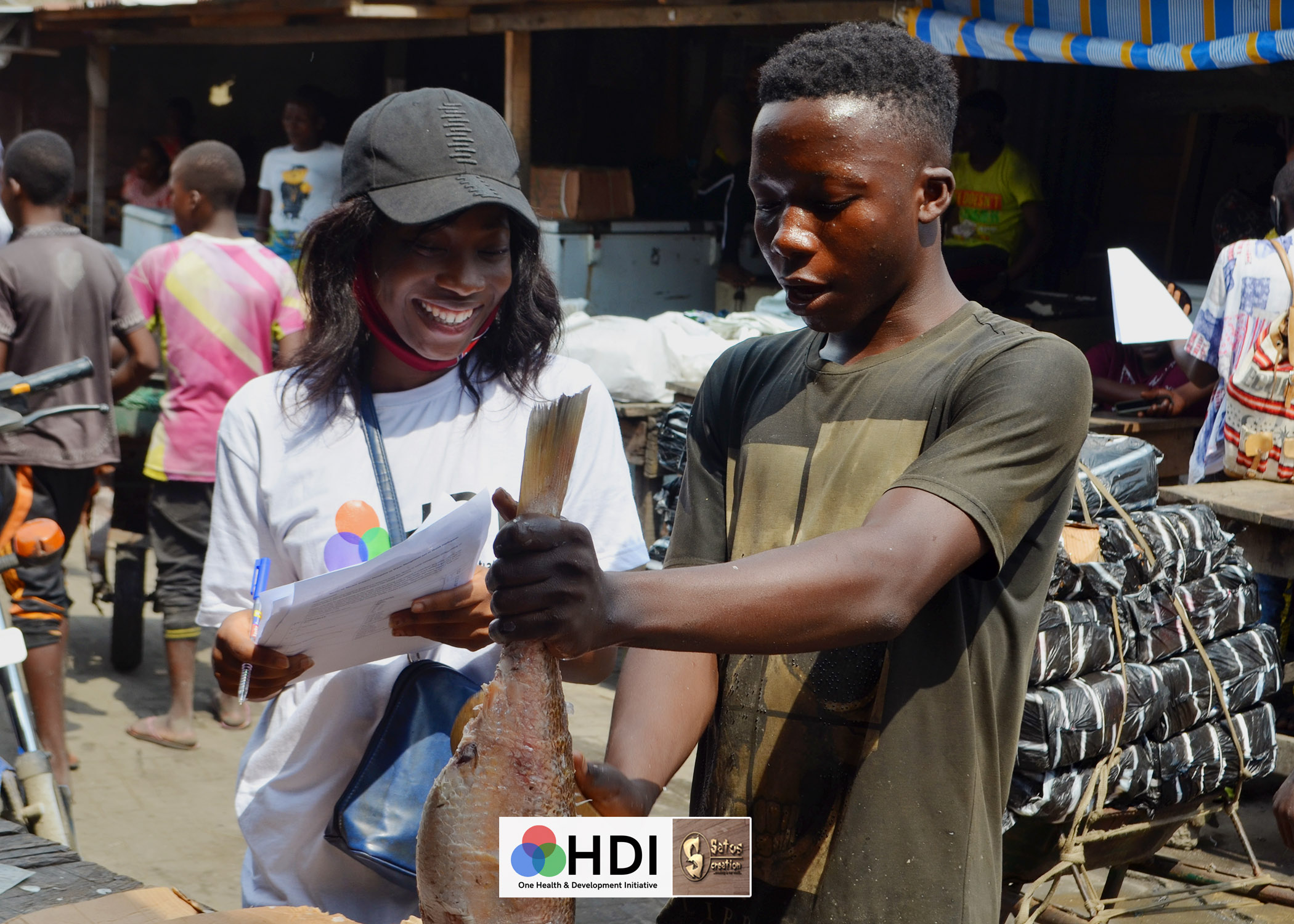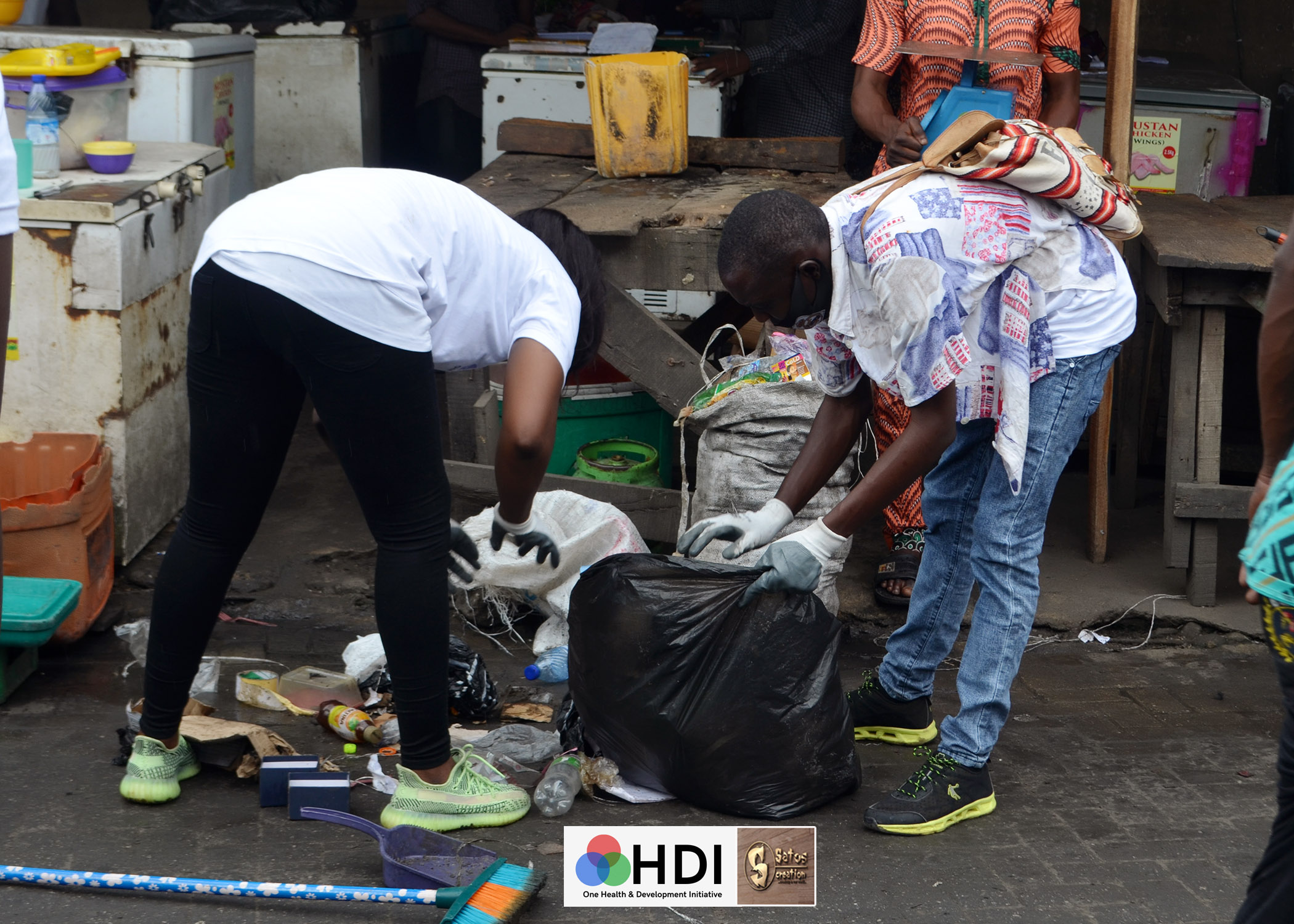
Written by Iyiola Oladunjoye (2020 OHAM Fellow), Additional contribution from Dr. Kikiope Oluwarore
***Project Clean-Up Ijora is a community-based project activity that was implemented by Iyiola Oladunjoye in fulfillment of his One Health Advocacy and Mentorship (OHAM) Fellowship Program
The Complete Project Report can be found here – Project Ijora – OHDI Report
Ijora Fish Market is a major port for the capture and trade of fish and aquatic food in Lagos Nigeria. Environmental Health is a key gap that needs to be addressed due to the market’s proximity to the Atlantic Ocean, waste dumping into the ocean and the risk of transmission of food-borne diseases to humans and animals in the environment.
As a one-health advocate and graduate of microbiology, I strongly believe in using both representations of all three triads of health to prevent infectious diseases of public health significance.
On the 28th of November 2020, the team of my friends and I set out to Ijora Fish Market, Ijora-Olopa, Lagos, Nigeria with a mission to advance community waste management practices through sensitization, advocacy and research.
We focused on 3 main activities:
1. Waste Management & Environmental Health Awareness
2. Market Clean-Up
3. Disseminate research questionnaire to understand “The Perception of the Market Traders on Environmental and Waste Management Practices”.

The importance of Environmental Health within the spectrum of “One Health” has shown that environmental and climatic factors are intricately connected to global public health issues affecting both animal and human health. In simple terms, “One Health” is a concept that recognizes the connection between “Human Health”, “Animal Health” and “Environmental Health”. My team and I believe that we have communicated this message effectively using Yoruba (an indigenous language, predominant in southwestern Nigeria and other parts of West Africa) to the local fishmongers and traders who also deal in seafood and other cold foods.

Additionally, of note is the trace of the spread of COVID-19 pandemic from the first patient in Wuhan, the province of Hubei, China, as a result of the wet market where different kinds of fish, meats and seafood were sold to residents. Part of the sales there had included bats and pangolins, known not just to be local delicacies but are now established as reservoirs of the coronavirus. Public health prevention through good hygiene practices has been central to the current fight against the pandemic by inculcating the axiom of “hand, face and space” in personal preventive practice. The observation of food hygiene and the proper disposal of biological waste is important in mitigating epidemic outbreaks.

Currently, we are preparing a report and analysing the data from our research with the aim of advising markets and other relevant stakeholders at local governments on the way forward from wrong practices. We hope this would play a key role at influencing policies that would effectively address the waste issues in our municipalities using Ijora Olopa, Apapa Local Government area, Lagos, as a case study. The Apapa Local Government area where the fish market is situated is of significance in terms of the global traffic at the popular Lagos Port which is presently one of the biggest docking ports in West Africa.
This #OneHealth community-based project themed ‘Clean Up Ijora’ was made possible through a Grant Award from my OHAM Mentor, Mrs. Foluke Areola, Director (Rtd.), Federal Ministry of Agriculture & Development and institutionally supported by One Health and Development Initiative towards the completion and in partial fulfillment of my professional fellowship (One Health Advocacy and Mentorship Program). I am grateful to them for the grounded training and mentorship during the fellowship. Special thanks to the Ijora Market Traders’ Association and to all who volunteered in the project.





